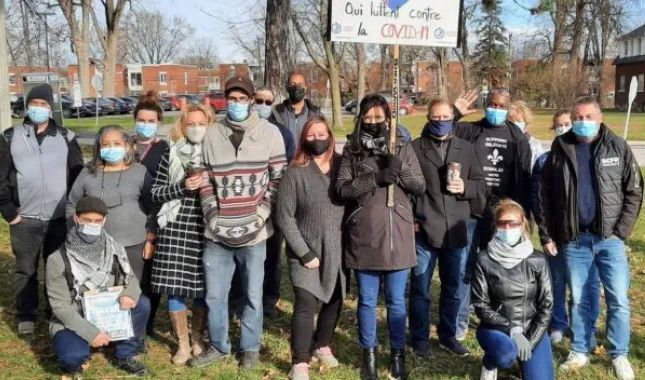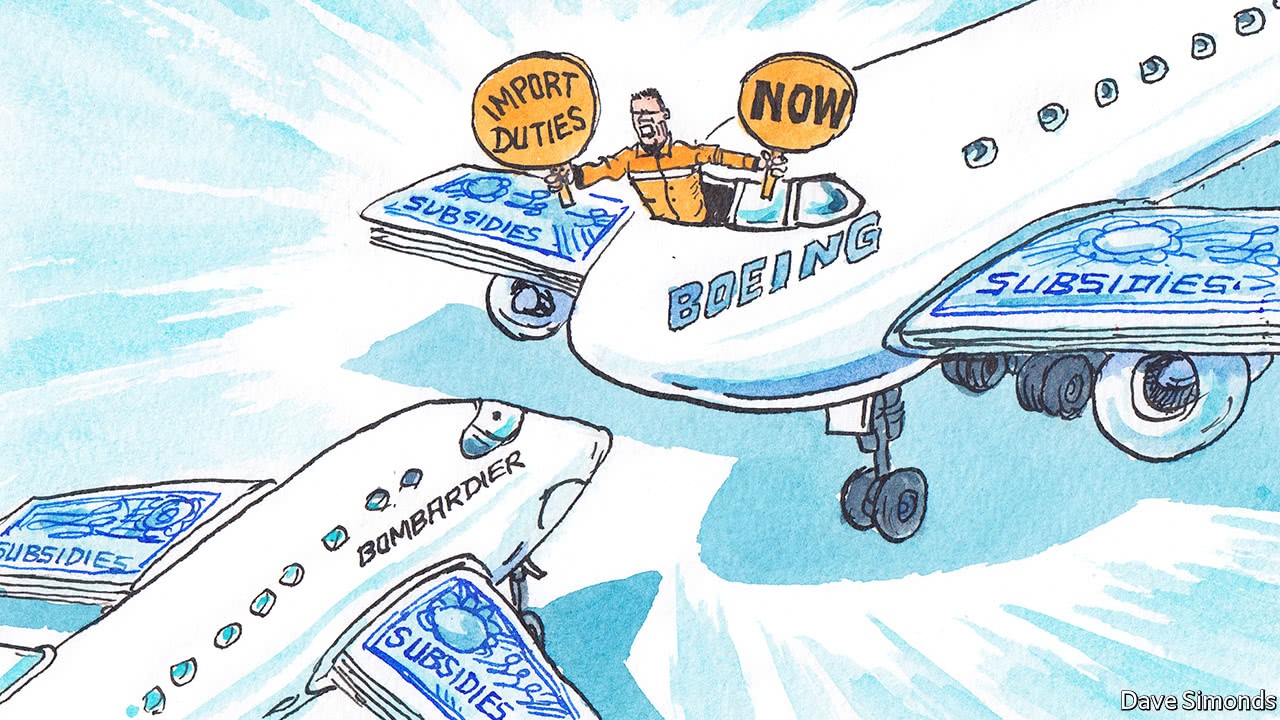Fight for our health! Not for private profits!
Unable to stem the second wave of COVID-19, the Legault government forced most of Québec back into lockdown by September’s end. Since then, the number of cases has continued to grow. While public health is claimed to be a priority, the maintenance of private profits is instead what is at the heart of the Coalition Avenir Québec’s (CAQ’s) strategy.
This fall, Québec has experienced a record number of COVID-19 infections. The province continues to have the highest rate of total confirmed cases per 100,000 people across Canada (although Alberta and Manitoba are catching up in this deadly league). However, it remains fourth for the number of people tested. Even though the fatality rate is ten times lower than it was during the first wave, Québec has by far the highest death rate per million in Canada.
These high rates materialized despite how the CAQ knew, since spring, that a second wave was coming. The start of the school year and the return to work resulted in an explosion of cases. Even after a month and a half of confinement measures, the situation continues to worsen.
The number of cases explodes
According to government numbers in November, more than a third of Québec’s private and public schools have at least one active COVID case. According to the citizen initiative Covid écoles Québec (Covid School Québec), the rate is much higher, at about half the schools. About 46 kindergartens and childcare centres also have infections.
More than a quarter of outbreaks in the last month were in school settings, making it a major source of contagion. However, workplaces make up the bulk of new infection cases. According to data from the Government of Québec, more than half of outbreaks occur there, not to mention those in living and care settings such as long-term care homes (13%). This leaves a meagre 4.5% for other environments, activities and events.
Individualizing the blame
Despite these facts, the Premier and his docile officials do not hesitate to blame the public at large for this second wave. Parties, bingos, tams-tams or karaoke trigger their anger and compel the government to send everyone in sanitary penance, in their respective corners!
Although the director of Montreal Public Health, Dr. Mylène Drouin, criticises some of the containment measures imposed in recent weeks, she is also using the same analysis of individual blame. She believes that it is now necessary to trace and record “hyper-transmission events” such as parties and gatherings.
This discourse places the spread of the pandemic on the shoulders of individuals. Certainly, health behaviours are important and are helping to temporarily curb the spread of COVID-19. On the other hand, they are insufficient to contain the coronavirus, let alone eradicate it.
Healthcare failure
In the health and social services’ sector, there have been nearly 17,000 infections of workers, mostly due to lack of personal protective equipment (PPE). These individuals have accounted for 25% of COVID-19 infections in Québec since the beginning of the pandemic. This proportion is much higher than in Ontario (16%), the United States (17%) or Spain (16%).
Despite this, the disastrous management of the CAQ government has spread to schools. At the end of the summer, education unions denounced the lack of resources and staff to cope with the second wave. Added to this were last minute mixed and contradictory health guidelines, in addition to announcements of insufficient additional funding.
The problem of inadequate ventilation in more than half of school buildings – identified as a vector of contagion – has not been addressed. The Fédération autonome de l’enseignement’s (FAE, a large education union) called for a massive and accelerated screening campaign for students and school staff, but the government did not act. The speed of contagion within Québec schools inevitably increased drastically.
Many people feel that their enormous sacrifice was made in vain. The “easing” that health authorities talk about with contempt is an expression of a loss of confidence in authoritarian, incoherent and ineffective government management. Why has the government failed so miserably, a second time?
”It’s the economy, stupid”
Because the government’s priority is an “economic recovery,” not public health. To send people back to work, others have to take care of their children. All the arguments put forward by the authorities regarding the development of children – no matter how valid – have been used to send students back to school and revive the machines for the benefit of big companies as quickly as possible, at our health’s expense.
To appear to be doing something, Legault’s government is putting on a show imposing strict sanitary measures at marginal contagion locations (e.g., bars, restaurants, gyms, etc.). Meanwhile, the most lucrative private sectors of the Québec economy – such as construction, mining and energy – are simply not affected by the maximum warning of a “red zone.”
At the end of September, the CAQ bankers’ government announced its intention to invest up to $1.4 billion to set up an industry to produce lithium batteries. The goal is to attract foreign multinationals to develop Québec’s mining resources and workforce, with an investment of public funds of up to $7 billion over 10 years.
In his November budgetary update, Finance Minister Éric Girard announced an exceptional investment of $1.5 billion for economic recovery. This money will mainly go into the pockets of private companies. Of this amount, only 4% will be invested in schools. The CAQ also wants to maintain a five-year horizon for returning to balanced budgets, which paves the way for new fiscal austerity measures.
In the current global economic context, these billions invested in the “local economy” will not prevent Québec companies from being swallowed up or eliminated by major international players in the medium or long term. By rolling out the red carpet to multinationals, the Québec government is only allowing their shareholders to take advantage of the current health and economic crisis.
Defending our jobs
Clearly, the government always has money available when it comes to offering billions to private companies in order to “stimulate investment.” But where is the money when the time comes to make minimal adjustments to the cost of living for public sector employees? Or to hire the necessary personnel to avoid the current waves of burnout and resignations?
Add to all this the record profits made by web giants, banks, construction and distribution companies. These profits must go to the workers who make them possible! By reclaiming some of the wealth we create for a tiny elite, we will have new opportunities. Last May, Alternative Socialiste launched a petition to tax the rich in order to finance public services. The Red Hand Coalition has just launched its own, and Québec solidaire is also taking this political direction.
An economic recovery in the interests of workers inevitably requires massive investments to create unionized jobs for accessible, free and high-quality public services. The public service is the largest provider of jobs in Québec.
Fighting for our health
To eradicate the coronavirus, accessible, free screening, alongside vaccination campaigns, are needed. The precarious state of the health and social services system makes this difficult.
The free market leaves us at the mercy of crooked medical manufacturers and profit-hungry pharmaceutical companies. Their race for personal protective equipment escalated in the spring. This time, there are juicy profits for first companies that produce vaccines. However, only the state can seize strategic economic sectors in order to produce in a democratic way what the majority of the population really needs, when it needs it.
It is necessary to fight for a massive reinvestment in health services and a democratically administered nationalization of all large private companies related to healthcare (clinics, pharmaceuticals, personnel agency, medical equipment, residences for seniors). And these often-multinational companies do not have to be financially compensated when they have generated massive profits through the exploitation of people with diseases and/or care needs.
However, such a program is impossible with a government in the pocket of banks and employers, such as the CAQ. This would also not be possible through an administration that balances vampire-like multinationals with state-owned enterprises on a tight rope.
In order to meet the health needs of workers and their families, we will need to fight tirelessly for concrete demands. The current situation requires a radical left opposition. An opposition that goes beyond the framework of collective agreements, beyond election campaigns and parliamentary life.
From both a trade union and a political point of view, there is a need for a broader vision. The capitalist system is incapable of giving the working class the bare minimum to survive, let alone thrive. We must build political leverage through our numbers, in the interests of all workers. We must replace this regime of a corrupt elite with a system where the economy is planned by and for the people who work.
We need democratic socialism to guarantee public health and people’s basic needs.




